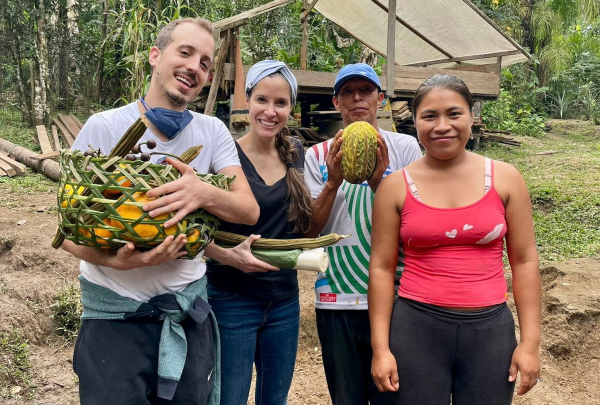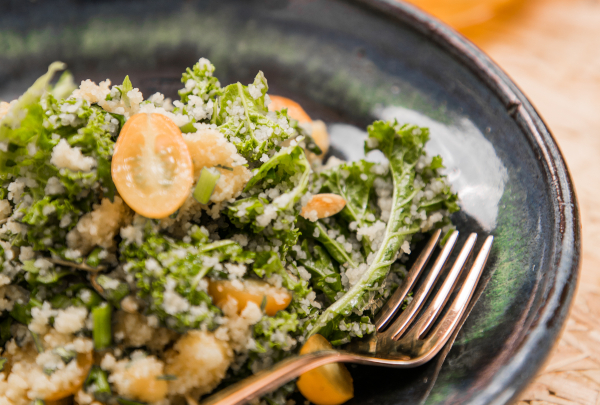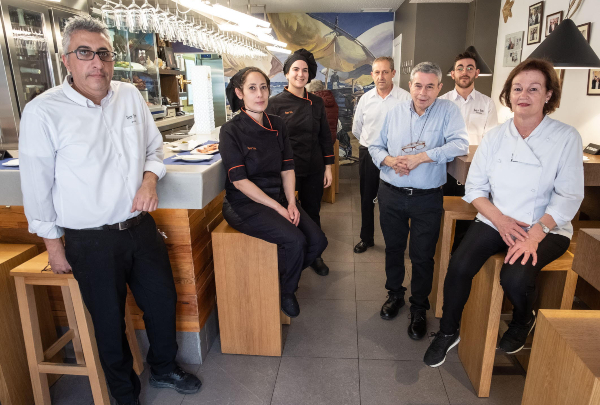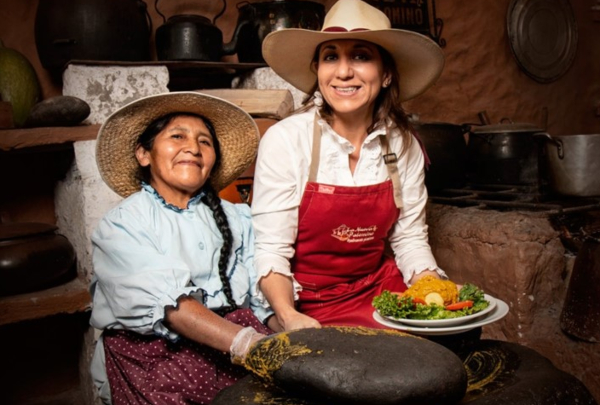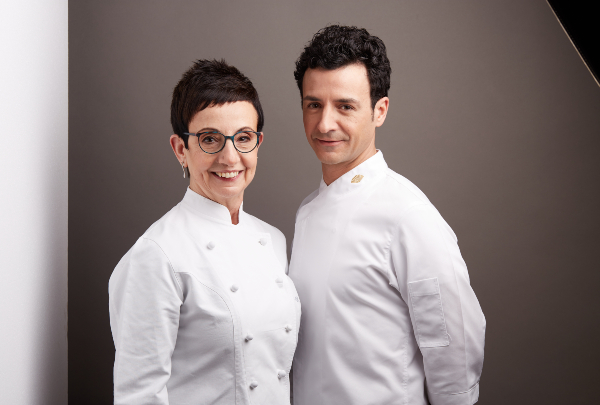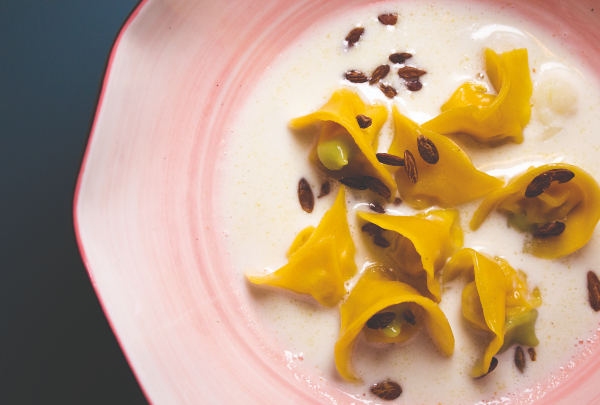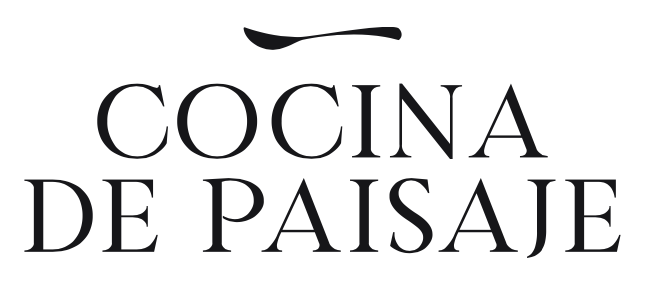News
A rundown on Carito Lourenço (Fierro*), the only female Argentinian chef with a Michelin star
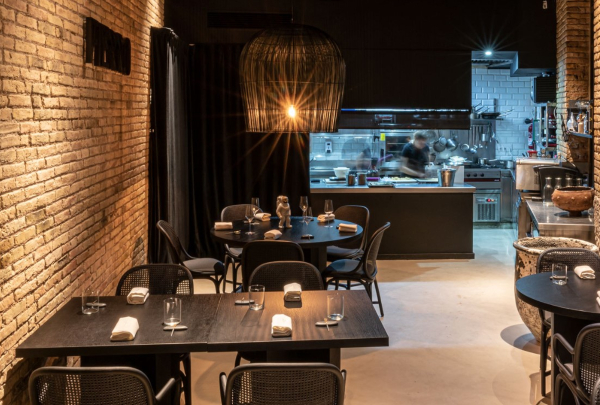
Alongside her partner, Germán Carrizo - although she is in the kitchens day in day out - she runs the Fierro restaurant in Valencia, which gained its first star at the last round of Michelin awards, coincidentally held in the city. Carito Lourenço was born and studied in Argentina, and moved to Spain to discover the world. She ended up in Valencia, and that put an end to her travelling. There she found love, there she consolidated her career with Dacosta (on her watch and Carrizo's, El Poblet earned its first star), and there she finally settled down with a "unique" restaurant, because her cooking is Spanish Mediterranean with an Italian-Argentinian perspective.
Carito Lourenço is at FéminAs with her head chef to demonstrate "the passing of the torch" and the empowerment of women in international gastronomy, where "there are few restaurants without women in positions of authority". It is a slow process, but "something is changing". “When I arrived in Spain, I was practically the only woman at the restaurants I worked in”. At Fierro, there are now seven of them.
The first post-pandemic May with a Michelin star. How are things going for you?
We're happy and secure. Enjoying our customers and looking forward to tourists arriving. Very happy, really.
Has the star changed you to any great extent?
No. Although we've expanded our team, and also our opening days because of the repercussions it had.
Changes, such as doing away with the single table you started out with ...
Totally. And that wasn't because of the Michelin star, it was due to the pandemic. In January 2021 they shut us down in Valencia for the second time. The situation was such that a single shared table was non-viable, and so we decided to put in four tables for different groups with the same maximum total capacity (12). We made the experience more personal. And that was a turning point, because a lot of things changed when we changed the layout.
The gastronomy fare?
The gastronomy didn't change, but the service did. With a single table everything was moving at once, and whatever we discussed, we were doing it for everyone at once. The experience was the same for all customers. When we started in, we began to expand the team because we needed to get to more tables. And table service was enhanced.
Is the idea of a single table still around?
It won't be coming back in the space where Fierro is located. But it's a concept we like, it identifies us, and it might come back in a complementary space, for instance. Fierro will be continuing with its four tables.
Because of Michelin? It seems the French guide is not very impressed with the single-table concept ...
That's a question I've been wondering about too ... I don't know whether we got the star because of that, but we're definitely comfortable with that.
And what about your cooking? How has it evolved?
The modus operandi and the essence are the same. We've always worked according to the terms and concepts of superior gastronomy and excellence. That's our understanding of cuisine. Although it's true that over time we've found our own way, very Mediterranean cooking, but also personal, because it has a lot of Argentina in it. That makes our fare unique. We don't reinterpret traditional Spanish recipes because we're not familiar with traditions here. So we cook with our own vision and our memories of Argentinian cuisine. Fierro has a considerable mixture of Italy-Spain-Argentina in our opinion.
You cook and run the business with Germán Carrizo, also from Argentina. Where did you meet?
We're both from Argentina, but I'm from Córdoba and Germán is from Mendoza, where we met when we were studying. We were friends and colleagues there. Then both of us travelled separately to Valencia to find out about Spanish cuisine, and we met up again working in the Submarino restaurant. Since then we've always worked on the same projects.
There are a lot of couples working in restaurants, but they get used to one being in the kitchen, and the other working the floor or managing the business. You two are the chefs. How do you divide it up/complement each other?
Initially at Fierro we did everything between the two of us. We didn't have any functions divided up. Now we've expanded, we saw the need to divide our tasks and complement each other, especially because of the other businesses. Nowadays each of us handles different business units. I take care of Fierro and pastrymaking; Germán runs Doña Petrona (the couple's second business in Valencia) and advisory.
Is it just you on your own in the daily round at Fierro?
I do the daily round, but the recipes and the creativity are down to both of us.
A big wow for Valencia and Valencia's female chefs. Michelin award ceremony and honours for you, for Vicky Sevilla in Arrels, for María José Martínez at Lienzo, for Bego de La Salita …
I'm really happy for Valencia. Globally, I can see a trend of generation change. There are loads of new male and female chefs taking up their positions alongside those who've already made their mark. The issue of women in gastronomy is a long race, and the time is coming. It's something global. In most of the world's gastronomy restaurants nowadays, if they're not head chefs they're assistant chefs, but the presence of women, and women issuing orders, has increased.
By the way, are you the first female Argentinian chef with a Michelin star?
I think so. It was a lovely surprise when they told me about it. I hadn't noticed, and it really is something to be proud of.
How do you see your participation at FéminAs?
A happy event. I'm going with Cristina Gómez, Fierro's head chef at the moment. I thought it would be great to go with her, as a way of introducing her. Together we'll be cooking what Fierro is these days, with a focus on our work with local suppliers.
Did you have any female role models when you were young?
It's true that now there are many more female chefs who can become role models, but my story doesn't fit here, because when I was studying in Mendoza I worked at a restaurant where all the staff were female. In fact, the first man to work there was Germán. The owner, the partner, the team ... all women. And it wasn't just a run-of-the-mill restaurant, it was a gastronomy restaurant: Las Negras. So one of my first roles models definitely was a woman, the chef and manager there: Silvana Cavagnaro.
Maybe the situation is different in Argentina and Spain, and perhaps there have always been more women in haute cuisine over there ...
I don't know, I don't think so. But I must tell you that it was certainly a change for me, because when I arrived at Submarino I was practically the only woman there. The only woman, in fact, when I went to El Poblet. There may be more matriarchs in Argentina, especially in traditional restaurants, but I think it's more or less the same thing here ...
What is true is that the female presence in fine dining has increased. In fact, your own team must have many more women than those you saw at Submarino or El Poblet back in the day ...
Of course. Now there are seven of us. It's true that historically men have concentrated on their careers, and women on their families. That's the way it's always been, and it takes time to change that. We're working on it.

